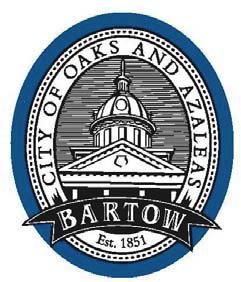Bartow, Florida, located in Polk County near the center of the state, is considering a FTTH network for the community's 17,000 residents. At a recent City Commission meeting, members decided to put city administrators on task and develop a plan to eventually offer triple play services to residents.
Suzie Schottelkotte reported on the initiative for The Ledger.com, quoting Mayor Leo Longworth, who commented, "I think the residents are ready for it and it's something that's needed."
The City has an existing 100 mile fiber network and offers connections to some local businesses. Government and schools also use the network. At the meeting, city commissioners heard from a fiber optic consulting firm that estimated an expansion to households at $3.3 million for capital costs and $2.5 million to run the network during the startup years until the network breaks even.
Comcast now serves the community through its cable television franchise agreement and is a source of constituent discontent:
"Without discrediting anybody, we just don't have the quality," [Mayor Longworth] said.
The Polk County Democrat also covered the discussion. Steve Steiner referred to the Mayor's comments about the private sector:
[Mayor] Long reminded commissioners that they as well as city staffers and the general public present, are familiar with the problems experienced with the current broadband provider. Long also expressed the doubt another provider would be willing to come to Bartow to install and upgrade the current system in place. The number of businesses and the size of the population does not provide any true incentive.
The Florida Cable Telecommunications Association (lobbyists for the cable industry) responded to the initiative in a predictable fashion. From the Ledger article:
"Before the city fathers take the taxpayers' money and move in this direction, they had better understand what they're getting into," he said. "It's going to be a long time before they're making money. How long do they want to lose money? — that's the real question."
The network generated about $155,000 in revenue for the city in 2012 and both stories indicate the desire to generate revenue as the main impetus. Currently, net income from the city electric department account for about half of Bartow's general fund. Community leaders hope entering the telecommunications industry will diversify the revenue source.
While potential revenue can be a factor, communities tend to primarily focus on expanding connectivity for quality of life, affordability, educational, and economic development.
Bartow has an advantage because it already possesses an existing network that contributes to local economic development. Students are already connected with city resources, and local government is taking advantage of the network. The leaders and staff at Bartow have a higher level of expertise than communities who start from scratch.
While the commission seemed positive about the plan, both reporters describe a healthy dose of caution when moving forward. From the Ledger article:
"This can be done," [City Manager George Long] told commissioners during Wednesday's workshop. "There are very few negatives here. We can do it, but it has to be done properly."





